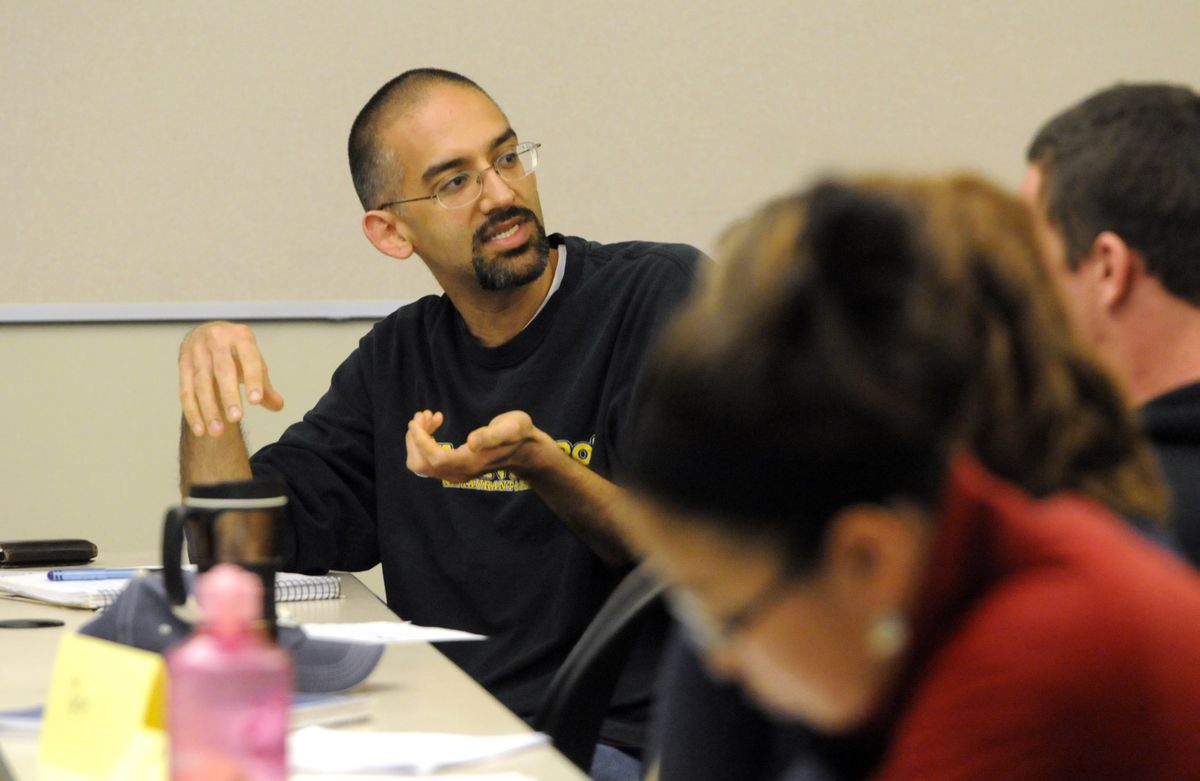Digging out the roots of hate
GU course explores the hows and whys of prejudice

This semester, Gonzaga University began offering what may be the only course of its kind in the country – an interdisciplinary class in hate studies.
Five professors from different departments teach the class. When one lectures, often one or two others are in the class, ready to pitch in if the discussion turns to their area of expertise.
“Looking at hate in its most extreme expression allows us to understand its causes,” said Raymond Reyes, Gonzaga vice president for intercultural relations.
The class, Why People Hate, grew out of the Gonzaga Institute for Action Against Hate, the university’s response to racist acts reported on the campus in the mid-1990s.
The institute was founded in 1997 to combat hate and hate crimes, not only at the university, but in the region and the nation.
Two years ago, after the institute’s advisory board suggested a class in hate studies, its director Jim Mohr began lining up professors to teach it.
“It was really about finding the faculty who were interested,” Mohr said, adding that the professors were asked to take on the hate studies class in addition to their own course loads.
The professors are Monica Bartlett, psychology; Robert Donnelly, history; Molly Pepper, business; Marguerite Marin, sociology; and Vikas Gumbhir, sociology and criminal justice.
The course is intended to show why and how hate occurs and explore ways to prevent it.
“The only problem,” said Donnelly, “is the students that signed up for the class don’t really need it.” Still, he hopes the course “will touch some of them in ways they didn’t expect.”
Response to the class, which is limited to 29 students, was overwhelming, and there is a waiting list for next spring.
Most of those who signed up are sociology majors. Kayla De Los Reyes, a senior, is the only business major in the class.
“It’s one of a kind,” De Los Reyes said, “and on a topic that I have been interested in for a long time.”
She said many of the issues raised in the class are relevant to business and human resources in particular.
On Tuesday, Pepper, who typically teaches human resource management, was covering some of the ways that business is hurt by hate, including bullying and incivility in the workplace.
It may come as a surprise to many, Pepper said, that most workplace bullying is committed by women against women.
“In many ways we are our own worst enemies,” she told the class before showing an ABC News clip on bullying, that said one in six Americans had reported being bullied on the job – 70 percent of them by women.
Each professor teaches four sessions of the class. Pepper also is covering racism, sexism and privilege, which can translate to lost productivity.
“It’s not just the victim” who is hurt by hate, she said. “It’s the people around the victim and the perpetrator who are hurt as well.”
Bartlett teaches the social psychology of stereotyping and discrimination.
“I wanted to have students stop and think about ways in which every one of us uses stereotypes or acts discriminatorily even if we don’t want to or don’t know that we’re doing it,” Bartlett said.
As a sociologist, Gumbhir ties seemingly minor prejudices of individuals to crimes against humanity. “There is a relationship between these minor atrocities and the Holocaust,” he said.
Gumbhir cited the skinhead movement, which was galvanized by the hate-filled lyrics of white power rock music. You may say music can’t hurt anyone, Gumbhir said, but it led people associated with Tom Metzger’s White Aryan Resistance to murder Mulugeta Seraw, an Ethiopian immigrant, in Portland in 1988.
Marin and Donnelly discuss institutionalized hate in American history.
The Immigration Act of 1924 emerged amid fear of eastern and southern European influences, Donnelly said.
“Does fear breed hate? Clearly it does,” he said.
“We have always feared and hated people who are different from us,” said Marin, whose section focuses on nativism.
In the past, the nation feared and hated Irish and Italian immigration, she said. “That led me to a contemporary discussion about the fear of immigrants today, particularly those coming from Latin America who are undocumented.”
Then as now, the fear of rapid change in the ethnic and racial fabric of our nation is compounded by economic fears, Marin said.
Reyes said he hopes the hate studies class will be the beginning of something that can benefit the entire region, particularly the business community.
“Hopefully, it will create the momentum to establish a field of hate studies at Gonzaga,” he said.